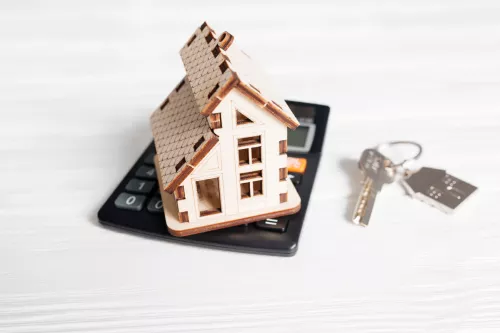Finding a place to live can be challenging, especially if your credit history is less than perfect. However, discovering apartments that don't require a credit check can be a crucial solution for numerous individuals. Research indicates that more than 60 million people possess either bad or poor credit scores, falling below 600.
This suggests that there's a large community of people in a similar situation, seeking alternatives, particularly given that the average credit score of renters in the U.S. stands at 620. We aim to find the intricacies of such apartments, covering common questions and offering tips for securing your next home.
What are no credit check apartments?
No credit check apartments are rental properties where the landlord or property manager does not require a credit check as part of the application process. This can be beneficial for individuals with low credit scores or those who haven't built a credit history yet and are looking for a new place to live.
We can say that such rental opportunities, where credit checks are not mandatory, are uncommon in many areas. In smaller towns with more laid-back rental markets, credit checks might be less required, but in areas with high rental demand, it is most likely to find credit and income stipulations in the application process of renting.
Why Choose no credit check apartments?
These apartments are ideal for renters who have faced financial difficulties, such as bankruptcy, that negatively impacted their credit scores. They offer a second chance to secure housing without the stringent requirements typically associated with traditional rentals.
Often, landlords may be hesitant to accept applicants with scores under 680, especially if there are potential tenants with higher scores. It's also common for many landlords to disregard applications from those with credit scores below 620. So, for those who don’t meet the scores requirements, there is the option of choosing no credit check apartments.
Why do landlords conduct credit checks for apartments?
For landlords, credit checks serve as a crucial component in tenant screening. While a credit score isn't a flawless measure of a tenant's reliability, it helps landlords assess the likelihood of timely rent payments. Alongside credit assessments, most landlords also carry out background checks and request income verification.
Be cautious with landlords who offer a rental process without any screening, as this might not be legitimate. Be skeptical of listings that appear overly attractive or lack sufficient photos or detailed descriptions, as these could be rental scams. It's wise to be cautious about visiting an apartment if the listing shows any red flags.
Strategies for Renting with Bad Credit
If you are looking for an apartment but you know that your credit won't help you with that, don’t panic. There are a few strategies you can follow to be able of finding your new home:
Begin Your Search Online

Start by searching online for rentals that don't require credit checks. However, pinpointing apartments that don't require credit checks can be challenging online, as this detail is often not advertised by property managers. But it doesn’t mean the end of the line. Try this options:
Examine the listing details
Utilizing online platforms you can gather extensive information about potential landlords from their descriptions, including their approach to credit and background checks. You can also read the reviews of former tenants which can give you information about the apartment and neighborhood you are interested in.
Send a message
The most reliable method for understanding a landlord's policy is by inquiring directly. Utilize the messaging feature on online platforms to communicate with landlords to show your interest in the apartment and explain your financial situation.
Explore social media
Social media platforms, particularly those with a community focus like Facebook groups, can be useful resources for looking for apartments for rent by the owner. Usually it is much easier to negotiate when dealing directly to the owner than with property management companies. But watch out for scams, never send money before signing a contract and seeing the house personally.
Propose an Immediate Move-In

For landlords, vacancies can be costly as they need to cover the mortgage and utilities without receiving any rental income. In areas with low rental demand, this financial pressure could work to your advantage. If you're in a position to move in right away, you might find landlords more willing to overlook a lack of credit history.
Provide Income Proof
Presenting your latest pay stubs and tax returns from the past one or two years can demonstrate to your landlord that you have a stable income capable of covering your rent. In competitive rental markets, it's often necessary to also provide your bank statements. This acts as evidence that you have adequate savings to sustain yourself during any financial difficulties.
Secure a Personal Recommendation
Favorable references from previous landlords can be as impactful as a high credit score. Besides showcasing your record of punctual rent payments, a recommendation from a past landlord can also highlight your dependability and trustworthiness as a tenant.
Offer a Higher Security Deposit
Consider offering a larger security deposit at the beginning of your lease. This extra amount serves as a safety net for the landlord in case of unpaid rent. While standard practice is to deposit an amount equal to one month's rent, you might propose two or three months' worth, depending on your financial capacity.
Find a Co-signer or a Roommate
In the absence of alternative solutions, seek out a trusted friend or family member with solid credit to co-sign your lease. Be mindful that by agreeing, they become responsible for your rent if you're unable to pay on time. To maintain healthy personal relationships, ensure you always pay your rent fully and promptly.
Additionally, it's worth thinking about getting a roommate. If your roommate has a strong credit score, it might boost your chances of securing an apartment. Plus, splitting the rent can be more budget-friendly.
Look for Month-to-Month Rental Agreements
A month-to-month rental agreement is an arrangement where the tenant and landlord agree to a monthly leasing term. As these agreements are typically shorter in duration, you may often find landlords who are willing to forego the credit check for such leases.
Building Credit for Apartment Eligibility
Securing an apartment with no or poor credit is a tough task, requiring careful planning and preparation. Start by gathering financial documents, references, and additional funds. To build a solid financial foundation for leasing, follow these steps:
Inspect Your Credit Report
Begin with a thorough examination of your finances. Everyone faces financial challenges at some point and learning how to identify factors contributing to your low score can help you pass through this phase.
Establish a Credit Score Target
Aiming for a specific credit score helps you stay motivated and track progress. Scores of 680 or more are ideal for landlords, but many accept scores around 630. Remember, higher scores give you an edge over other applicants.
Reduce Debts
Debt significantly affects your credit score, with collections debts, credit card balances, and other loans like student debt being crucial. Prioritize settling collections debts and addressing any late payments. Then, work on reducing credit card balances, as lowering these can quickly improve your score.
Obtain a Credit Card
Building credit requires having credit. Start with a secured credit card, typically with a small balance, which you prepay. Eventually, you may transition to a traditional credit card. Alternatively, become an authorized user on someone else’s card; just ensure they maintain a zero balance.
Ensure Timely Payments
Consistently paying on time is crucial for a positive credit history. Late payments lower your score over time, especially with ongoing timely payments, and eventually drop your credit history lower.
Regularly Monitor Your Credit
Check your score monthly to track your financial standing and goals. Regular monitoring also helps in spotting errors or suspicious activities promptly. Utilize free services for credit tracking.
People Also Ask
Are no credit check apartments more expensive?
Not necessarily. Pricing depends more on location and amenities than credit requirements. But, apartments that don't require credit checks may sometimes charge higher rent compared to similar units in the area, as they are deemed more risky for landlords. However, consistently paying your rent on time can contribute to improving your credit score, potentially leading to better rental opportunities when you decide to relocate.
Is It Possible to Rent an Apartment Without a Credit Score?
Indeed, it's possible to rent an apartment even if you don't have a credit score. To enhance your likelihood of securing a rental, you might need to focus on apartments that don't require credit checks, properties rented out directly by owners, month-to-month lease agreements, secure a cosigner, or propose a larger security deposit.
What Credit Score Will Get You an Apartment?
While a score of 700+ is often desirable, many landlords are flexible. It will depend largely on the location and how competitive is real estate in the area. Some may accept lower scores, especially if other aspects of your application are strong (like a steady income or a good rental history).

 Marcio Vasconcelos
Marcio Vasconcelos





